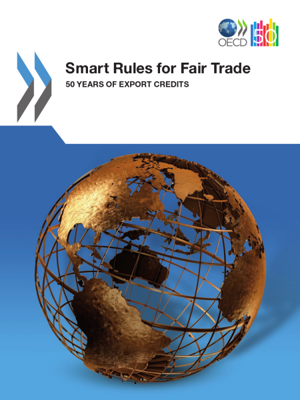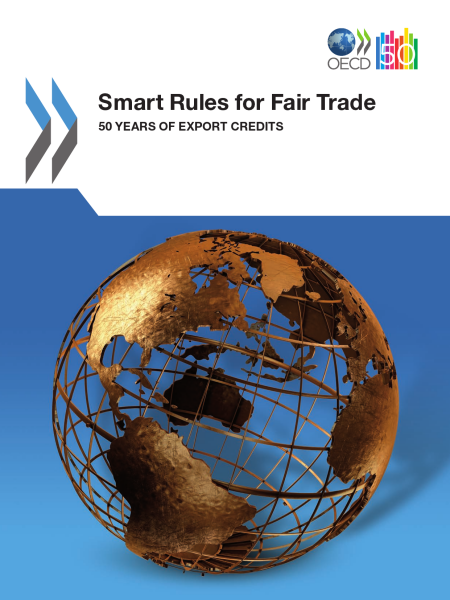
- Retrait gratuit dans votre magasin Club
- 7.000.000 titres dans notre catalogue
- Payer en toute sécurité
- Toujours un magasin près de chez vous
- Retrait gratuit dans votre magasin Club
- 7.000.0000 titres dans notre catalogue
- Payer en toute sécurité
- Toujours un magasin près de chez vous
Description
On the 50th anniversary of the OECD, we examine the unique work the organisation performs in regulating and rationalising governments’ use of export credits in support of exports, jobs, economic growth and national interests more broadly. This work is part of a global post war effort to emphasise multilateral co operation and sound economic policies to promote co operation, efficiency and prosperity rather than destructive competition, controversy and conflict.
OECD export credits work is one of the basic building blocks of the ever growing structure of global trade agreements that aim to maintain open and efficient markets. The objective is to eliminate subsidies and unfair practices in the economic competition that forms the foundation of a healthy and dynamic global economy. The elimination of official financing subsidies in global trade is only a part of the broader trade policy agenda, but it is a vital part, and has been delegated to the OECD by the WTO. Since financing is the life blood of trade flows, specialised OECD housed work allows trade to flow efficiently for aircraft and other capital goods while other trade policy work and litigation continue at the WTO.
The export credits work at the OECD is described in this collection of essays. However it is about much more than the series of agreements described herein. It is more fundamentally about the governments and their people - policy makers and experts - who gather at the OECD to build collectively a system of export credits disciplines that is fair, transparent, adaptable and effective. It is therefore as much about people and ideas as anything else. The export credit secretariat pictured above represents only the latest in a long line of OECD staff committed to facilitate and advise this work.
The OECD’s motto on its 50th anniversary is “Better Policies for Better Lives.” This reminds us that in the end, it is policies that are at the centre of human well being. And export credits work is about promoting these better policies by developing “smart rules” that open markets and maintain a level playing field and by bringing people and governments together to this end.
Spécifications
Parties prenantes
- Auteur(s) :
- Editeur:
Contenu
- Nombre de pages :
- 236
- Langue:
- Anglais
Caractéristiques
- EAN:
- 9789264111745
- Date de parution :
- 27-09-11
- Format:
- Ebook
- Protection digitale:
- Digital watermarking
- Format numérique:

Les avis
Nous publions uniquement les avis qui respectent les conditions requises. Consultez nos conditions pour les avis.






